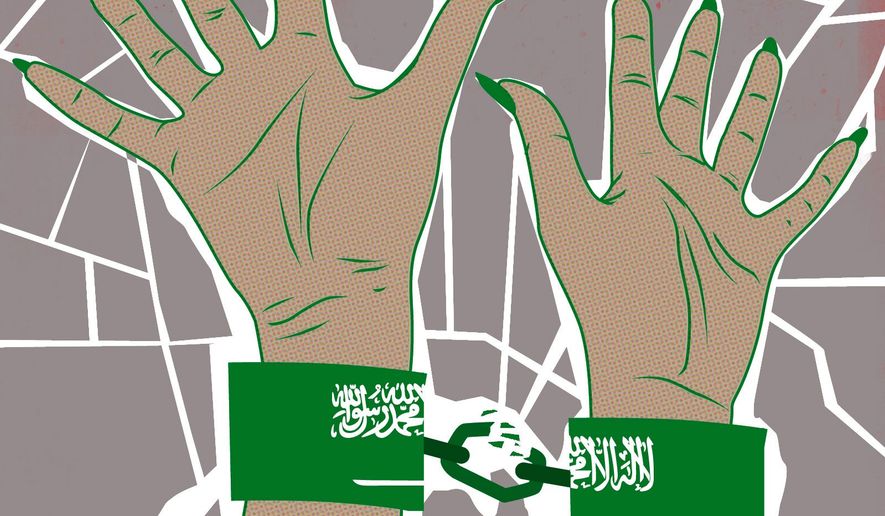OPINION:
One of the many faults of those media committed to the undermining of President Trump is ignoring historic changes in the Middle East resulting from his administration’s policies. Israel and the United Arab Emirates have entered into full diplomatic relations an achievement for which Mr. Trump has been nominated for the Nobel Peace Prize.
Bahrain will allow Israeli aircraft in its airspace. Kosovo and Serbia are opening embassies in Jerusalem. The ayatollahs’ grip on Tehran is weakening by the day. And the Saudi king is examining conditions that will allow the kingdom to fully normalize its relations with Israel and end a conflict that has endured for 72 years.
As exciting and as encouraging as all that is, perhaps the most dramatic changes in the Middle East are inside Saudi Arabia itself, where American support has facilitated the actions of Crown Prince Muhammed bin Salman. American relations with Saudi Arabia are often described as purely a matter of realpolitik. In this case, American policy has demonstrated a purpose and impact well beyond that. What is happening is a true human rights revolution.
In September 2017, a royal decree lifted a decades-long ban on women driving. This was a revolution in and of itself. Prior to that decree, women were held hostage to male relatives who could control where they went and when. No longer. Women now have the ability to go where they want when they want.
In October 2017, the crown prince pledged to move the nation back to the tradition of moderate Islam. For Saudi Arabia, which for decades has struggled with the connection between hardcore clerics and extremism, there could hardly be anything more fundamental and dramatic. The crown prince, in fact, pulled no punches in describing the intent of the change and its scope, saying:
“What happened in the last 30 years is not Saudi Arabia. What happened in the region in the last 30 years is not the Middle East. After the Iranian revolution in 1979, people wanted to copy this model in different countries, one of them is Saudi Arabia. We didn’t know how to deal with it. And the problem spread all over the world. Now is the time to get rid of it.
“We are simply reverting to what we followed – a moderate Islam open to the world and all religions. 70% of the Saudis are younger than 30, honestly we won’t waste 30 years of our life combating extremist thoughts, we will destroy them now and immediately.”
In March 2018, the Saudi Ministry of Justice announced that divorced women would instantly retain custody of their children. This was yet another dramatic step forward in the emancipation of women within a society that has traditionally been male dominated.
In May 2018, sexual harassment was made a crime. For women, newly able to move about on their own, this was a dramatic statement. It signaled that they were being fully welcomed into society as equal partners.
In July 2019, a royal decree ended restrictions on women traveling abroad. Women age 21 and over were allowed to obtain passports and travel outside the country independently. A social order in which women could only travel with the consent of male relatives and under their supervision had ceased to exist. The ripple effects of this change alone will fundamentally transform Saudi society in the years to come.
In September 2019, tourist e-visas for travel to the kingdom were issued for the first time. Visitors from 49 nations were allowed to use the new visas. Rules on conservative dress were also relaxed. Female tourists were informed they no longer would have to cover their hair or wear abayas.
In April 2020, flogging was abolished. This was not simply a matter of outlawing a particular form of physical punishment. Flogging is mandated under strict Islamic law, so outlawing it was a clear and unmistakable sign that the grip of the clergy was being broken.
Also in April 2020, the death penalty was abolished for anyone under 18. This was yet another dramatic move aimed at reforming an often criticized and harsh criminal justice system and bringing it into line with international norms.
All of these actions were taken against the broader backdrop of something called the Vision 2030 initiative, the brainchild of the crown prince. The initiative is aimed at bringing Saudi Arabia into the 21st century and fundamentally transforming it politically, economically and socially. It has a strong focus on developing the potential of the kingdom’s youth and its women.
The transformation of Saudi Arabia is not going to take place overnight. The process will encounter obstacles and setbacks. Yet, what is happening in Saudi Arabia, with the support of the Trump administration, is already having an impact in the Middle East and, ultimately, will affect the entire world. A social and political revolution in a major nation is underway.
Together, Crown Prince Muhammed Bin Salman and President Trump are not just reforming Saudi Arabia. They are beginning to change the landscape of the entire Middle East for the better.
• Sam Faddis, former CIA operations officer with experience in the conduct of intelligence operations in the Middle East, South Asia and Europe, is a senior analyst at Ravenna Associates, a strategic communications company. He is the author of “Beyond Repair: The Decline and Fall of the CIA” and, with Mike Tucker, “Operation Hotel California: The Clandestine War Inside Iraq.”




Please read our comment policy before commenting.